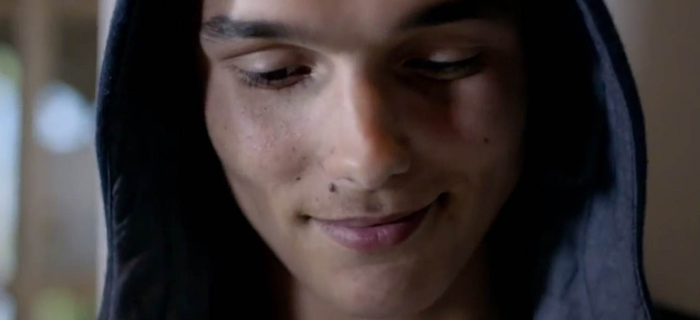Kinderen en jongeren zijn continu in het nieuws. De meest lezenswaardige/opvallende berichten uit andere bronnen verzamel ik wekelijks in een post met ‘kortjes’ – oneliners met een linkje naar het oorspronkelijke artikel. KLIK & LEES:
What was once considered ‘hipster style’ has gone completely mainstream; Urban Outfitters and American Apparel are trying to sell an aesthetic that is no longer fresh and exciting (Racked)
If you want to imagine how the world will look in just a few years, book a ticket to Disney World — reserve a meal at a restaurant called Be Our Guest, using the Disney World app to order your food in advance (Wired)
Disney is betting that the man to make you believe an elephant can fly is Tim Burton; the filmmaker behind Pee Wee’s Big Adventure, Batman, Big Eyes and Alice in Wonderland will direct Disney’s coming live-action remake of Dumbo (The Wall Street Journal)
Thanks to Netflix, Amazon and YouTube, the competition for kid’s eyeballs is fiercer than ever, but that’s not slowing down Sesame Street: “There’s a little bit of Cookie Monster in everybody” (Engadget)
YouTube plans to blow right past 3D video and straight to all-encompassing 360-degree video when the feature goes live in the next few days (Ad Age)
Here’s a roundup of 11 marketing campaigns involving YouTube stars, some of which have worked and one that landed the brands in trouble with the Advertising Standards Authority (Econsultancy)
Instead of giving children typical snacks including chips and chocolate bars, the Clif Kid collection of energy bars offers something that will keep their energy levels high in as natural a way as possible (Trend Hunter)
US fast food chain Burger King has removed fizzy drinks from its children’s menus in the US, leaving just fat-free milk, low-fat chocolate milk and apple juice as accompaniments to its children’s meals (FoodIngredientsFirst.com)
These days it’s hard to avoid the message that thin is best; by age three, girls already show a preference for thin people (Research Digest)
Two skeletons meet, they fall in love, they go dancing in a park for all the world to see, spreading a message of acceptance and harmony and vaulting to the top of the Viral Video Chart (Ad Age)
[youtube http://www.youtube.com/watch?v=PnDgZuGIhHs]Parents who ‘overvalue’ their kids by teaching them that they’re unique and extraordinary—which they all are, of course—encourage those kids to have an inflated view of themselves and a less charitable view of others (Bloomberg)
Both parents of children ages 6–17 (71%) and kids (54%) rank strong reading skills as the most important skill a child should have; yet while 86% of parents say reading books for fun is extremely or very important, only 46% of kids say the same (The Washington Post)
Artificially intelligent software is reshaping traditional teaching materials, but it’s unclear what the new technology will take away from the learning experience (The Atlantic)
The BBC launched Make it Digital, a major UK-wide initiative to inspire a new generation to get creative with coding, programming and digital technology — all year 7 children across the UK get a ‘Micro Bit’ coding device for free to inspire a future generation, 1 million devices in total (BBC)
In the next five years, we’ll start to rethink a lot about education; we might be sending kids to school in self-driving cars by 2020, but that doesn’t mean they’ll be taught by teacher-avatars and given tests via drone (Fast Company)
The Building Hero Project is a design leadership scheme which gives young people access to cutting edge equipment so they can run community improvement projects (Springwise)
The Millennium Development Goals (MDGs) is a blueprint designed by the United Nations in an attempt to quantify, qualify and address global issues, several of which are health-related, in the year 2015 (Trend Hunter)
Face-to-face bullying is more cruel and harsh than online attacks, a survey of school students found: “It clearly indicates the feelings of the children and the very real threat they have of being physically harmed by another child” (ScienceDaily)
Snapchat is in the headlines again as Chinese ecommerce giant Alibaba invests $200 million into the messaging service, but its young users are much more concerned about what happens within their own accounts (Mashable)
Line, which has 181 million monthly active users worldwide, has yet to truly market its mobile app in the United States. But the Japan-based messaging platform has already built up 25 million American users while its rapid global growth has attracted big brands and celebritie (Adweek)
Last week at Mobile World Congress, Telefonica announced that it’s testing a plan that will let consumers trade brand engagement for more data (Ad Age)
As communication on mobile devices has become more image-based—through the use of emoticons, emojis and stickers—brands like Ikea, Coca-Cola, General Electric, Comedy Central and others have created their own branded emoticons to engage audiences in a new way (Adweek)
Dot and Dash are Wonder Workshop’s two new robots that teach coding skills to children as young as five, now being field tested in a few dozen elementary school classrooms (Fast Company)
Biba and playground equipment maker PlayPower are teaming up to create augmented reality mobile games that make kids engage in real-world activities, so they can get more exercise and outdoor play (VB)
Mattel’s smart Hello Barbie, which features a microphone designed to listen to kids and produce appropriate responses when connected to wi-fi, has come under fire from a consumer group looking to protect the “intimate conversations” kids have with their dolls (The Drum)
Disney Parks fans can transform themselves into Captain Hook or Queen Amidala with a new photo-transformation mobile application that provides a personal and entertaining way to engage with some of the characters from the theme parks (Mobile Marketer)
Sommige attracties in het nieuwe overdekte attractiepark Yumble in Roermond kunnen zich meten met het attractie-aanbod van de Efteling: “Yumble is het pretpark van de toekomst” (Looopings)
In de eerste app die rondom het bekende kleuterduo van Annie M.G. Schmidt en Fiep Westendorp is gemaakt, spelen Jip en Janneke winkeltje (Querido)
Het lijkt erop dat Apple met zijn eerste slimme horloge op een generatiekloof is gestuit; jongeren blijken de Apple Watch helemaal niet zo spannend te vinden, terwijl mensen van boven de 35 het klokje wel zien zitten (De Telegraaf)
Meerkat, de nieuwe app voor live videostreamen, geeft de aanzet tot een nieuwe trend: ‘mee(be)leefmedia’ (Adformatie)
Fedde Jonker, commercieel directeur Vezet: “Het is nu de tijd en het moment om met groenten en fruit voortrekker te zijn, te blijven en te worden — doe het nu, want de ‘grote jongens’ gaan echt in het gezondheidsgat duiken” (AGF)
De moestuintjes die klanten van Albert Heijn kunnen sparen zijn een doorslaand succes, Tooske Ragas presenteert een zoektocht naar de beste moestuinder van Nederland en volkstuinverenigingen hebben ellenlange wachtlijsten; hobbytuinen zijn hot en niet alleen onder ouderen (AD)
Coca-Cola rolt een campagne uit om de lancering van zijn nieuwe bundelverpakking van vier keer 1,25 liter in Nederland te promoten.; een tv-spot benadrukt de rol van Coca-Cola bij het versterken van bijzondere familiemomenten (MarketingTribune)
[youtube http://www.youtube.com/watch?v=ezZiOiAdEDg]Tegenwoordig settelen twintigers zich op latere leeftijd dan tien jaar geleden — deze Generatie Flex volgt langer onderwijs, komt op latere leeftijd op de arbeidsmarkt en kiest ook later voor vastigheid in hun liefdesleven (CBS)
Je moet het de onderzoekers van IBM nageven, ze hebben een duidelijke titel gekozen voor hun rapport over Millennials als werknemer: Myths, exaggerations and uncomfortable truths — jonge werknemers lijken gewoon op mensen (X, Y of Einstein)
Uit onderzoek van Scholieren.com blijkt dat het helemaal niet zo ernstig gesteld is met het leesgedrag van de jeugd; bijna 60% van de scholieren leest namelijk nog regelmatig voor zijn plezier een boek (Scholieren.com)
Het Metropole Orkest gaat basisscholen helpen met het geven van muziekles; het orkest uit Hilversum heeft lesmateriaal ontwikkeld dat vanaf komende week op ruim 740 basisscholen in Nederland wordt gebruikt (De Telegraaf)
De helft van de kinderen zijn bang in het verkeer en acht op de tien voelen zich niet veilig, blijkt uit een enquête van het VTM KZoom-programma Zeppe en Zikki, in samenwerking met de Universiteit Hasselt (Nieuwsblad.be)
Het experiment 2toDrive waarbij jongeren van zeventien al hun rijbewijs kunnen halen, lijkt geslaagd; inmiddels hebben honderdduizend jongeren op deze manier rijexamen gedaan (NU.nl)
CJP, NS en GVB werken samen om een nieuw product te introduceren: de Schooltoer — hiermee reizen docenten en leerlingen uit het voortgezet onderwijs die zijn aangesloten bij de CJP Cultuurkaart, duurzaam en met fikse korting in de daluren met NS en GVB (MarketingTribune)
Jongere kinderen hebben meer inlevingsvermogen, delen meer met anderen en zijn gehoorzamer dan hun oudere broer of zus op dezelfde leeftijd, concludeert Sheila van Berkel in onderzoek waarop zij promoveert aan de Universiteit Leiden (NJi)
Uit gerichte controles van het anti-dopingagentschap in fitnesscentra, blijkt dat 80% van de geteste jongeren tussen 20 en 28 verboden spierversterkende middelen gebruiken om met een fantastisch lichaam te kunnen uitpakken op het strand of de festivals deze zomer (HLN)
Er zijn grote zorgen om jonge Capelse tieners die groepsseks hebben; het is nauwelijks voor te stellen dat in de pastelkleurige flats in de achterstandswijk De Hoven kinderen van 13 wonen die hun hand niet omdraaien voor een gangbang (AD)
Ebru Umar: “Het gevaarlijkste onderwerp voor columnisten in Nederland zijn kinderen, andermans kinderen — waag het niet om als vrouw met een ongebruikte baarmoeder te schrijven over kinderen, opvoeden en het ouderschap” (Metro)
Als bestuurders gaan rappen, dan weet je dat de waterschapsverkiezingenstrijd écht is losgebarsten (Omroep Brabant)
Het Nibud maakt zich zorgen over gezinnen waarbij één ouder werkt en een jaarinkomen heeft tot 35.000 euro, de traditionele kostwinnersgezinnen — om volledig mee te kunnen doen in onze maatschappij komen zij feitelijk geld te kort (Nibud)
“Hoe saai het ook is, volg je economielessen en hou je bezig met je eigen geldzaken” — dat is het advies van Caro Emerald aan bijna honderd leerlingen van het IVKO-college in Amsterdam (NOG)
Amsterdam telt, na Rotterdam, de meeste jongeren in eenoudergezinnen; in de hoofdstad woont zo’n 23% van de personen onder de 25 in een eenoudergezin (NU.nl)
En tot slot, klik hier voor 20 portretten van geweldige leraren (Bored Panda)

